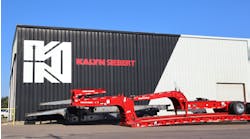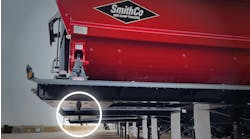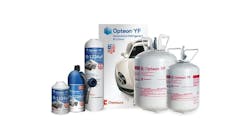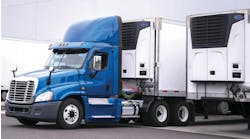Trailer Converter Dollies Lose “Parts and Accessories” Classification for FET Purposes
The IRS will no longer classify trailer converter dollies as “parts and accessories” but will rather place them in the “truck trailer chassis” category—which has federal excise tax (FET) implications for dolly manufacturers and dealers, as well as the transportation companies that purchase them for use in their businesses, according to Tim Reynolds, principal of dealerships for CliftonLarsonAllen.
In its Chief Counsel Advice (CCA) memorandum of December 18, 2015, the IRS notes that this reclassification makes the first retail sale of a converter dolly subject to the FET unless the dolly meets the gross vehicle weight (GVW) exclusion of 26,000 pounds or less, or the seller has received a valid exemption certificate from the buyer.
“Prior to the release of this memorandum, converter dollies were considered parts and accessories for FET purposes and taxed as such under the now repealed §4061,” Reynolds said. “There was also a well-known revenue ruling that characterized these dollies as “connectors” to convert semitrailers into full trailers, which further supported the FET position that they be deemed parts and accessories. As a piece of equipment under the “parts and accessories” category, a converter dolly could be FET-exempt in the first retail sale as long as it met the criteria and exclusions outlined in §4051(b), most commonly referred to as the six-month rule.
“But under the new guidance, the manufacturer of the dolly will be liable for the tax on its first retail sale unless the exclusion in §4051(a)(3) applies (less than 26,000 GVW) or the manufacturer obtains a properly executed ‘sale for resale or lease’ certificate from the buyer, as described in §48.4052-1(a).
“While the CCA does not state the exact date the IRS will begin to enforce this new guidance, we believe the IRS will begin taking this position on July 1, 2016, to allow time for manufacturers and trucking associations to adjust their accounting systems for this change when selling dollies exceeding the 26,000-pound GVW rating.”
He said taxpayers impacted by this change should expect to receive a letter from the IRS notifying them of this policy decision prior to July 2016.
“FET is confusing territory for truck and trailer dealers and manufacturers,” he said. “Our industry-specialized professionals welcome the chance to solve your FET issues and have extensive knowledge of the laws and regulations, along with the industry experience of interpreting and practically applying them in a variety of business operations. Our exclusive FET Review Service can help you take a proactive approach to identify potential exposure and implement corrective measures before the IRS does.”








